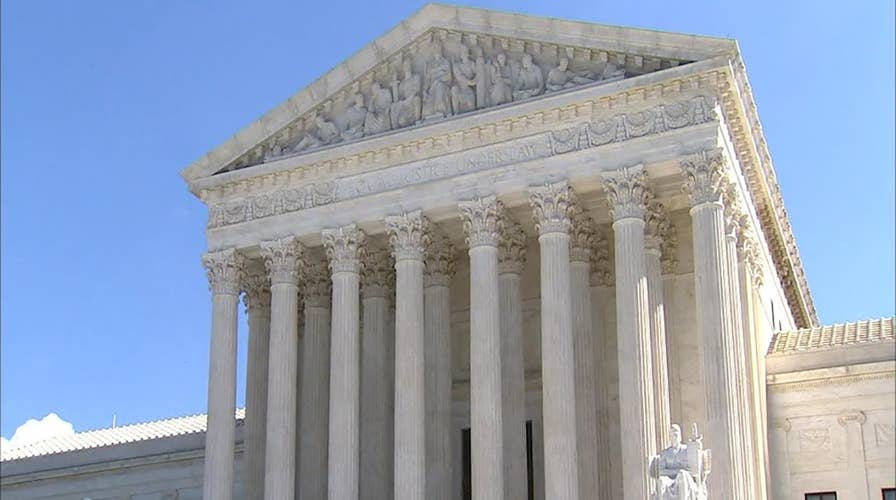‘Trigger’ law states set to ban abortion if SCOTUS acts
Just four states in the country have so-called ‘trigger laws’ on the books that would almost immediately ban abortions with only a few exceptions if Roe v. Wade were overturned
With President Trump’s recent appointment of Judge Brett Kavanaugh to the U.S. Supreme Court, many believe if he’s confirmed, a challenge and overturn of Roe v. Wade will soon follow.
If the court overturns the 1973 ruling, four states have laws that would ban abortions almost immediately. Louisiana, Mississippi, North and South Dakota have so-called abortion ‘trigger’ laws that would go into effect if Roe v. Wade was reversed.
Each state has a different way to implement the ban.
Louisiana’s law would punish anyone who performs or aides in an abortion with 10 years in jail and a fine up to $100,000. Mississippi lawmakers would move to ban the practice 10 days after a Supreme Court ruling.
South Dakota’s law would immediately be implemented and effectively ban abortions at all stages of pregnancy while North Dakota’s law is contingent on the recommendation of the state’s attorney general.
Those for and against abortions pounced shortly after President Trump tapped Kavanaugh for a seat on the high court. Those who favor abortion rights strongly believe that Kavanaugh’s nomination threatens access to the procedure.
“Today, with the nomination of Judge Kavanaugh, the president is presumably making good on his Roe-reversal promise,” Nancy Northup, president and CEO of the Center for Reproductive Rights, said in a statement. “Every senator should assume that is the case, absent a clear and compelling statement from the nominee that he agrees with the rationale and premise of Roe v. Wade — that the right to abortion is among the Constitution’s guaranteed personal liberty rights.”
Pro-life advocates argue the court needs to let states decide whether to ban abortion.
Jameson Taylor is the vice president of the Mississippi Center for Public Policy, an organization that lobbies for conservative principles.
“We’re thrilled about the potential for a Supreme Court pick that could move to protect life and protect maternal health,” said Jameson Taylor, the vice president of the Mississippi Center for Public Policy, an organization that lobbies for conservative principles. “What we’re asking for as a state, is let us have a choice over our abortion policy. Prior to Roe v. Wade, that’s the balance that we had.”
At least 12 states still retain their laws banning abortion before the 1973 landmark decision, while at least 17 states have constitutional or legislative measures in place protecting abortion. It is estimated that more than 20 states could move to implement bans if Roe v. Wade were overturned.
Former federal prosecutor and constitutional law expert Dan Burns said a possible challenge to Roe v. Wade could come up soon. He also expects states to act on banning or protecting abortion if a case were to come up.
“I think within 18 months you may see some type of case come before the court. You have to remember, Roe v. Wade and the issue of abortion is not a black or white, all-or-none issue,” Burns said. “It’s pretty complicated and it’s pretty nuanced so the point is: state’s have tried, even with Roe v. Wade in place, to put practical restrictions on the access to abortions and different regulations chipping away at [it]…you’re going to see more of that.”
Burns noted the court could see a shift to the right but that Chief Justice John Roberts may emerge as a swing vote in high profile cases. Burns said Justice Anthony Kennedy, who’s retiring, was often the swing vote on major cases.
“It’s not ever going to be clear how a justice is going to rule on a particular case before they assume the post,” Burns said. “Many justices, in any case, have proven to be a bit different than their ideology.”
A simple majority in the Senate is needed to approve Kavanaugh’s nomination – but he must first undergo a confirmation hearing in the Senate Judiciary Committee. A hearing has not been scheduled.













































